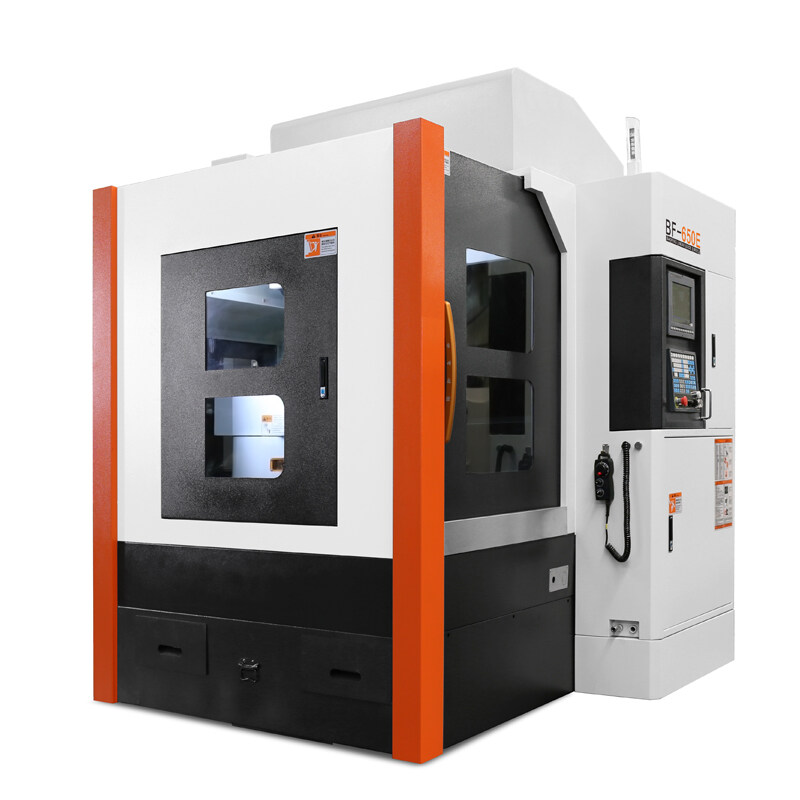E-postformatfel
emailCannotEmpty
emailDoesExist
pwdLetterLimtTip
inconsistentPwd
pwdLetterLimtTip
inconsistentPwd

Nyheter
What is the Difference between CNC Machining Center and CNC Lathe?
With the continuous development of the times, the CNC lathe is a prominent symbol of the industry entering the CNC era, and it is also one of the most widely used CNC machine tools. More and more traditional operation enterprises are gradually transforming.
With the increasing use of CNC lathes, they have a high rigidity 45-degree inclined tubular hollow integral bed and high rigidity, high speed, high-precision spindle. They are mainly used to process rotating parts such as shafts and disk sets. They can automatically complete the cutting and processing of internal and external cylindrical surfaces, conical surfaces, arcs, threads, and other processes through program control, and carry out grooving, drilling, expanding, reaming, and other work.

In addition, CNC lathes also have servo motor screw direct connection, sliding surface pasting plastic or wire rail, high transmission efficiency, high precision, modular design, compact and reasonable layout, convenient use and maintenance, suitable for mass production with high requirements for accuracy and dimensional consistency. The CNC turning center and CNC turning and milling center developed in recent years make it possible to complete more machining processes in one clamping and improve the machining quality and production efficiency. Therefore, it is particularly suitable for the machining of rotary parts with complex shapes.
The common point between CNC machining centers and CNC lathes is that they have installed CNC systems on ordinary machine tools. Lathes equipped with CNC systems are called CNC lathes, milling machines equipped with CNC systems are called CNC milling machines, and tool libraries are installed on CNC milling machines, which are called machining centers.
Difference between CNC machining center and CNC lathe
In terms of the number of axes, the small swiss CNC lathe controls two axes, while the machining center is controlled by at least three axes (four axes and five axes);
In terms of processing scope, small swiss cnc lathes are mainly used to process rotating parts, while machining centers are used to process some curved surfaces and grooves, etc;
From the perspective of tool magazines, small swiss cnc lathes do not have tool magazines, while CNC machining centers refer to machine tools with tool magazines.
The biggest difference between a CNC machining center and a small swiss cnc lathe is that the machining center can automatically exchange machining tools. By installing tools for different purposes on the tool magazine, the ability to automatically exchange machining tools in one clamping can be achieved. By installing different tools on the tool magazine, the machining tools on the spindle can be changed through the automatic tool change device in one clamping, to realize a variety of machining functions. The workpiece of the machining center is clamped at one time, which can complete all processes, to ensure various accuracy, while the small swiss cnc lathe only completes the processing of one process.
The basic programming code is the same, but limited special instructions may not be common between systems.
The machining center has powerful functions. It integrates functions such as milling, grinding, hole turning, and tapping. It is a relatively comprehensive CNC machine tool product. It can be said that you can use the processing center to make any hardware products and mold products. The processing center is far more powerful than these. Its operation is stable, safe, and highly efficient, and its human output is small. The product is smooth and textured with good dimensional accuracy. The quality of the machining center is also very good, which can be used for about 10 years.
Our company specializes in manufacturing CNC machining centers for decades and has 100 sets of high-precision machining and testing equipment. Such as hydraulic gantry planer, fixed beam CNC gantry milling, cnc lathe boring bar sleeves, live centers for cnc lathe, vertical and horizontal machining center, and large program-controlled guide rail grinding and UHF quenching equipment, material testing, three coordinate detectors, laser interferometer, ball sensor, etc.

